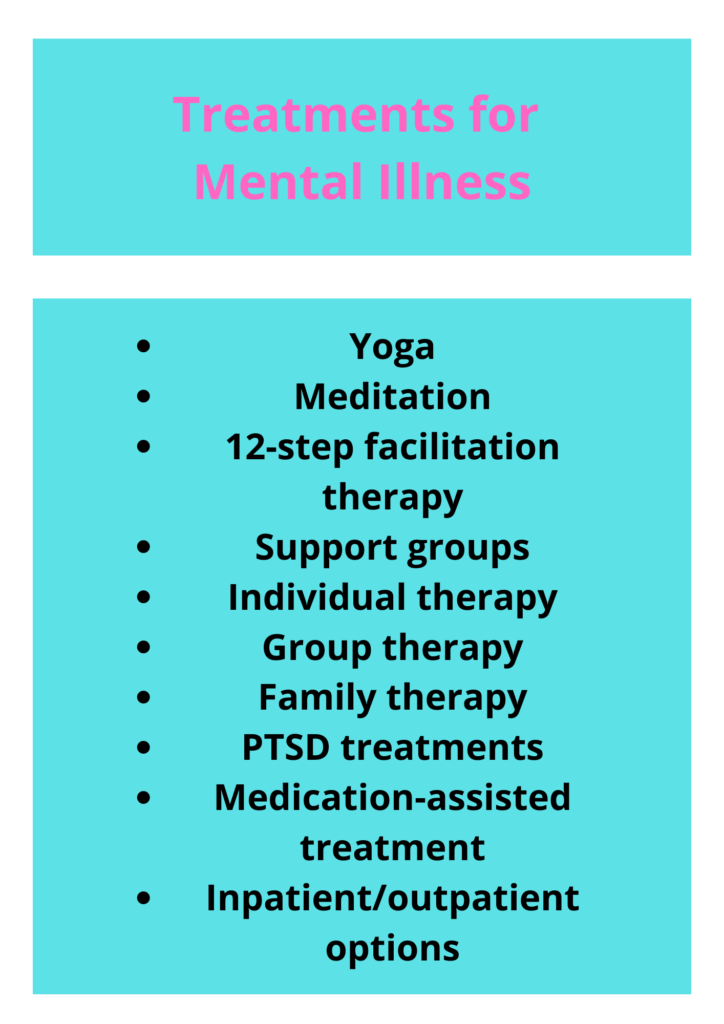Table Of Contents
- How Difficult is it Really to Recover from Mental Illness?
- Understanding the Variety of Mental Health Conditions
- Timeframes for Mental Health Illness Recovery
- Presentation of Mental Health Disorders
- Living with a Mental Health Disorder
- Treating a Mental Illness
- Why People Need to Understand the Depth of Mental Health Disorders
- Recurrences of Mental Health Issues
- Get Mental Illness Treatment Today
What does recovery from a mental illness even entail? Many people aren’t even sure what a mental illness really is. If you are struggling with anxiety, high stress levels, depression, PTSD, bipolar disorder or other issues like that, you have a mental health condition. It can be tough to deal with this and you may feel alone a lot of the time. However, there are professionals and others who want to support you in your recovery. It is possible to recovery, there is hope – so contact our Harmony Health Group today to get the mental health treatment you need and want.
Understanding the Variety of Mental Health Conditions
It is important to know there is a variety of mental health conditions out there. Some of them were noted above. The problem is there are many similar symptoms shared between various mental health illnesses, so it can often be tough to specifically diagnose one set mental health condition. With this being said, there are nearly 300 mental health conditions that someone could be diagnosed with such as:
- Depression
- Anxiety disorders
- Personality disorders
- Psychotic disorders
- Disorders or substance addiction
- Post-traumatic stress disorder
Even though there are so many mental health illnesses, it is important to remember that treatment is possible.
If you or someone you know struggles with mental illness, reach out to our Harmony Health Group for help.
Timeframes for Mental Health Illness Recovery
There isn’t any magical spell or straight cure for mental health conditions. However, with a combination of treatments, self-care and other treatments, recovery from a mental health condition is possible. However, it is important to note that the recovery process does take time. It can’t be done overnight or in a short amount of time – not if you truly want to recover. Putting a band aid over a bullet hole doesn’t help and neither does putting a small treatment in to cover up a severe mental health illness.
The thing is you don’t want to cover it up – you want to work through underlying issues and find solutions to your problems. About 25% of those who have a severe mental health disorder also have an addiction, this is also known as co-occurring disorder and can be treated as dual diagnosis in many facilities. It is important to treat both the addiction and mental health disorders together, so there aren’t any straggling symptoms left untreated.
Presentation of Mental Health Disorders
Many family members and friends may have already noticed your mental health symptoms or you may have noticed theirs. Either way, it is important for everyone to be able to recognize mental health issues in their loved ones and friends. Some of the ways that these disorders can present themselves include:
- Constantly fighting or arguing with friends and loved ones
- Forgetfulness
- Confusion
- Fear
- Anger
- Anxiety
- Irritability
- Feeling numb
- Frequent mood swings
- Fatigue
- Sleep issues
- Using drugs or alcohol to cover up mental health symptoms or other pain
- Feeling lost or alone
- Feeling hopeless
- Mental flashbacks
- Hearing voices
- Intrusive thoughts
- Eating issues
- Having unexplained body aches or pains
- Thoughts or attempts at self-harm
- Not taking care of responsibilities
As you can see, a mental health illness can present in a multitude of ways. It is just a matter of recognizing there is a need for treatment and getting the person the help they need.
Living with a Mental Health Disorder
Day-to-day living with a mental health disorder looks different for everyone. Some people are able to hide their mental illness very well, while with others, it is extremely apparent they have a mental health disorder.
If you or a loved one have a mental health disorder, it may affect various aspects of your life including:
- Relationships
- Work
- Personal self-care
- Confidence
- Finances
Basically, every aspect of your life might be affected in some way or another. The good news is there is treatment available to help you overcome these issues.
Treating a Mental Illness

If you or someone you know is struggling with a mental health disorder, there are numerous treatment options available.
Why People Need to Understand the Depth of Mental Health Disorders
There are many individuals who are diagnosed with a mental health illness who want to know when there will be a cure. Their friends and loved ones are eager to figure out what the cure is, as well. The truth is there are treatments to help manage these types of conditions, but at this point, they can’t truly be cured.
Mental health professionals say that a lot of psychotherapy for mental health illnesses involves medication, therapy, support networks and much more. People may need to change their sleep habits, value their treatments, commit to making inter and intrapersonal skill changes, let go of certain relationships and live a substance-free life. It does involve a lot of changes.
However, they don’t all have to be made at once and you can get the support and help you need to make these changes. Here at Harmony Health Group, we are ready to help you today. All you have to do to start is to reach out to our team for assistance. Once you do this, we can make sure your questions are answered and that you can be enrolled in a treatment program that is going to best help you to feel better.
Recurrences of Mental Health Issues
Will my mental health illness come back? Unfortunately, the mental health issues that were treated can come back. As noted above, there isn’t a cure for them like there is with infections or other health issues. However, if you follow through with your treatment plan and make sure you stay committed to your recovery, that can help to keep your symptoms at bay and your condition under control.
If you want to know more about the statistics for recurrences with your specific condition, reach out to our Harmony Health Group to discuss this today. We would be happy to review those statistics with you. When you are talking to us, if you are ready to get into a treatment program or you want to know how to help a loved one get into treatment for a mental illness, let us know.
Get Mental Illness Treatment Today
Harmony Health Group offers comprehensive care for those struggling with substance abuse and mental health issues, with facilities located in Florida, Massachusetts, North Carolina, New Jersey, and Tennessee. Our treatment programs address not only drug and alcohol dependency but also anxiety, depression, and other mental health conditions. By accepting insurance from major providers like Aetna, Cigna, Blue Cross Blue Shield, and United Healthcare, we aim to make our services accessible to many. Additionally, we provide private pay options for those without insurance, so you can discuss the cost of various treatments with us directly.
Our dedicated team is committed to guiding each individual towards lasting recovery through a combination of proven methods and personalized care. At Harmony Health Group, we believe that everyone deserves the opportunity to rebuild their lives and achieve mental well-being. Don’t hesitate to reach out and learn more about our diverse treatment options. Your path to a healthier, more fulfilling life starts with taking that first step, and we are here to support you every step of the way.
There are many different types of mental illnesses. Some people have anxiety, PTSD, depression, bipolar disorder or another mental health illness. There are some people who have multiple mental health conditions along with an addiction which is also a disease. Here at Harmony Health Group, we have a range of treatment options available for mental health conditions including all the ones just mentioned.
Do you or a loved one have a mental health illness? Do you want to start feeling better? If so, contact us today, here at Harmony Health Group, to get into a mental illness treatment program right away.

